|
|

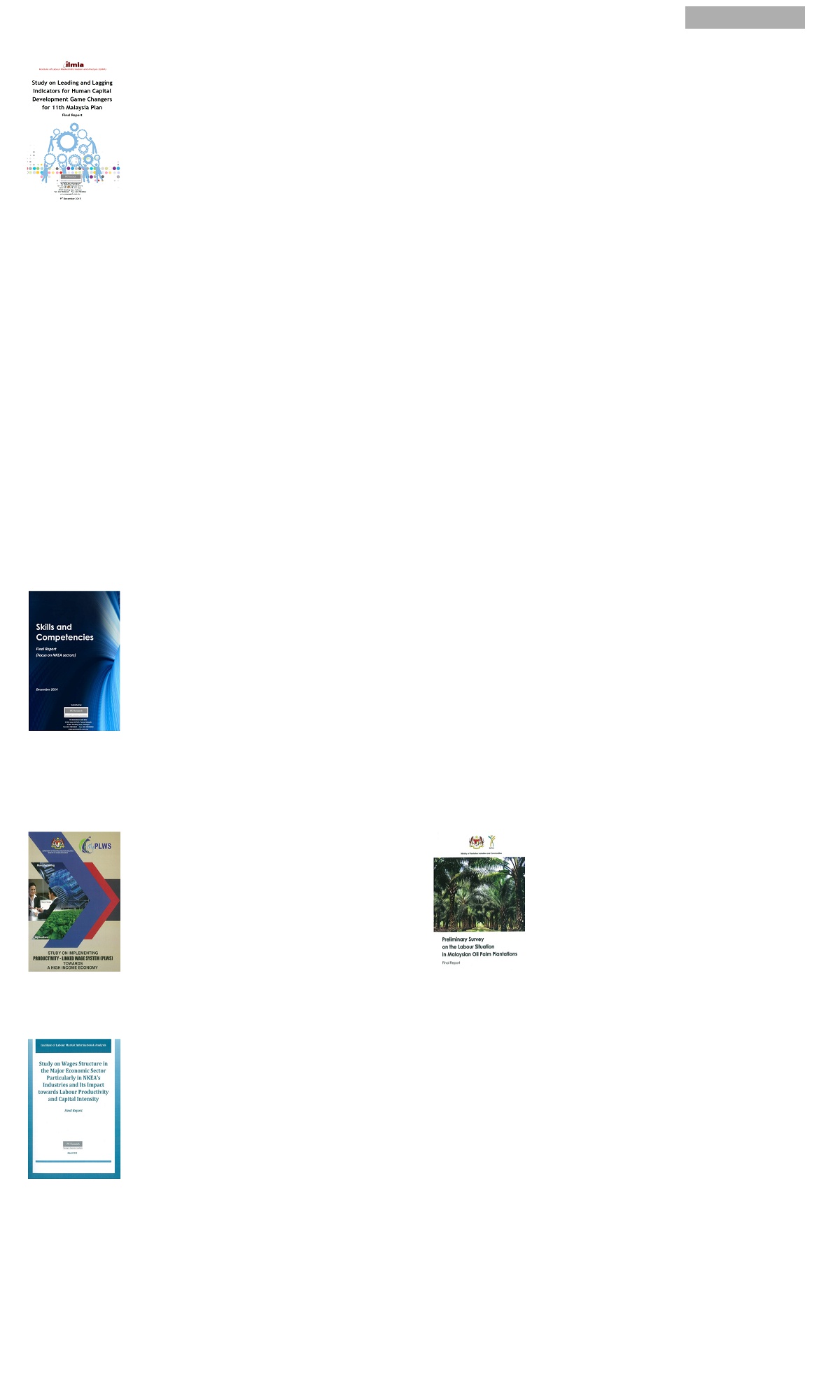


G-1-05, NZX Commercial Centre
Jalan PJU 1A/41B, Ara Jaya,
47301 Petaling Jaya, Selangor Malaysia
ceo@peresearch.com.my
Tel: 603-78042664
Fax: 603-78042863
Jalan PJU 1A/41B, Ara Jaya,
47301 Petaling Jaya, Selangor Malaysia
ceo@peresearch.com.my
Tel: 603-78042664
Fax: 603-78042863
SERVICES
Policy Research and Planning
Socio-Economic and Environmental Research
Project Formulation & Evaluation
Policy Research and Planning
Socio-Economic and Environmental Research
Project Formulation & Evaluation
© Copyright 2016 PE Research. All rights reserved.

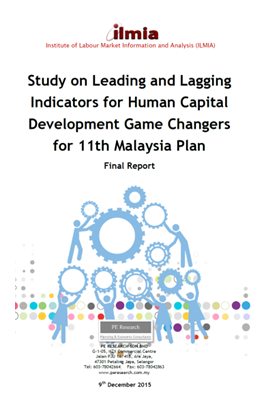





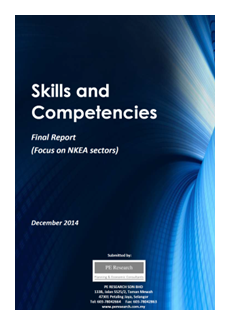


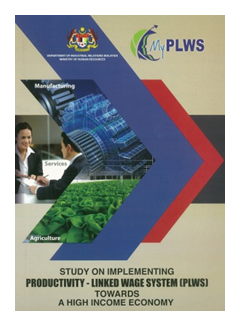
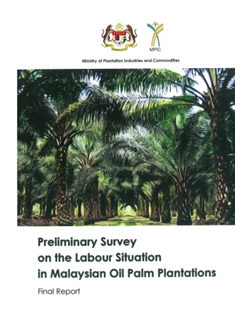


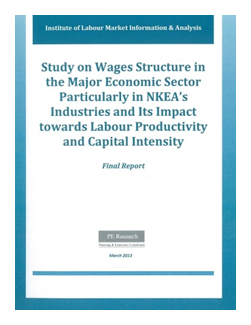





In response to the need for a Malaysian Critical Occupations Shortage List (COSL),
TalentCorp has commissioned PE Research to undertake a research project to review
recent macroeconomic developments in Malaysia’s labour market which highlights
the main labour market developments over the last five years by occupation, by
economic sectors & sub-sectors where possible, and the trends in wage/salaries. The
analysis incorporates socio-economic factors where appropriate, such as gender,
age groups, educational attainment, geographical, and contributions to GDP
(non-exhaustive).
This study also aims at analysing trajectory of the labour market, in association with demographic trends and the economic projections of the government, at least through 2020 but also for the next 10 years to 2025; as well as developing the Critical Occupations List (COL) with appropriate evidence-based explanations and justifications. A score-card approach together with reasonable and validated thresholds are jointly developed to determine which occupations are to be added to or removed from the COL.
This study also aims at analysing trajectory of the labour market, in association with demographic trends and the economic projections of the government, at least through 2020 but also for the next 10 years to 2025; as well as developing the Critical Occupations List (COL) with appropriate evidence-based explanations and justifications. A score-card approach together with reasonable and validated thresholds are jointly developed to determine which occupations are to be added to or removed from the COL.
Human Resources Related Studies
A Study on Developing Leading and Lagging Indicator for
Human Capital Development and Game Changer for 11th
Malaysia Plan (2015)
PE Research is contracted by the Institute of Labour Market
Information and Analysis (ILMIA) to conduct studies for four
11th Malaysia Plan (11MP) Game Changers - Wage & Skills
Index, Foreign Workers Management, Modernisation Labour
Law and Labour Market Information - on issues, benchmarking,
strategies and way forward.
Developing Labour Market Indicators for Determining Critical Occupations and
Imbalances in Specific Occupations (2015)
Migration Cost Survey for Vietnamese Workers in Malaysia (2015)
This study commissioned by ILO Regional Office for Asia and the Pacific, aims to
measure the migration costs for Vietnamese workers in Malaysia, to analyse of the
various components of migration costs and to shed light on where rent-seeking
behaviour occurs as well as other factors influencing migration costs. The study also
sets a baseline against which to measure reductions in migration costs in the future.
Based on the findings of survey, recommendations concerning the regulation of migration costs are formulated to inform the development of law and policy in Vietnam and Malaysia with the ultimate goal of reducing the vulnerability of migrants and increasing the benefits from international labour migration.
Based on the findings of survey, recommendations concerning the regulation of migration costs are formulated to inform the development of law and policy in Vietnam and Malaysia with the ultimate goal of reducing the vulnerability of migrants and increasing the benefits from international labour migration.
Study on Needs, Preferences and Practices of Employers of Domestic Workers in
Malaysia (2014)
This study, commissioned by the International Labour Organization (ILO), is to better
understand the needs, preferences, knowledge, attitudes, and practices of employers of
domestic workers with respect to the recruitment and employment of domestic workers.
Findings of the study have provided important information, both qualitative and quantitative data that aid efforts to better protect migrant domestic workers from abuses, informed intraregional and interregional exchanges, and evidence-based policies at the national level. Employers survey and stakeholder interviews are conducted to complete this study.
Findings of the study have provided important information, both qualitative and quantitative data that aid efforts to better protect migrant domestic workers from abuses, informed intraregional and interregional exchanges, and evidence-based policies at the national level. Employers survey and stakeholder interviews are conducted to complete this study.
More details:
http://www.ilo.int/wcmsp5/groups/public/---ed_protect/---protrav/---migrant/documents/publication/wc ms_383861.pdf (Page 5 of 12)
http://www.ilo.int/wcmsp5/groups/public/---ed_protect/---protrav/---migrant/documents/publication/wc ms_383861.pdf (Page 5 of 12)
Analyse the Skills and Competencies of Occupations in the
Malaysian Labour Market (2014)
This study is conducted for the Institute for Labour Market
Information and Analysis (ILMIA) to analyse data from the
2011 National Employers Returns, particularly on skills section,
as well as to understand and report on the skills and
competencies by occupations and sectors.
The findings contribute towards formulating human capital
development policies for the 11th Malaysia Plan, and review the
measures for achieving the objectives of the Economic
Transformation Plan.
Survey of Graduate Employability in High Flyer Firms (2014)
This survey is commissioned by World Bank and TalentCorp as part of the special
issue note on graduate employability, published in the Malaysia Economic Monitor
(MEM) Report that is launched in June 2014.
PE Research was appointed to conduct surveys on selected firms in Malaysia. An
on-line survey of selected High Flyer Firms in Malaysia is undertaken to collect
information about their perception of the quality of Malaysian graduates, the efficacy
of Career Services in Malaysian universities, and graduate employability programmes
organised by government.
Study on Implementing Productivity-Linked Wage System
(PLWS) Towards High Income Economy (2013)
The Industrial Relations Department under the Ministry of
Human Resources commissions this study to investigate the
implementation of productivity-linked pay system (PLWS) in
Malaysia.
The findings of the study are used to promote PLWS and contribute to the government’s objective of achieving a high income economy by 2020. To complete this study, several methodologies adopted include surveys and description of best practices of PLWS.
The findings of the study are used to promote PLWS and contribute to the government’s objective of achieving a high income economy by 2020. To complete this study, several methodologies adopted include surveys and description of best practices of PLWS.
Preliminary Survey on Labour Issues in Malaysian Oil
Palm Industries (2013)
The study, which is commissioned by the Ministry of
Plantation Industries and Commodities, aims to understand
the labour situation in the Malaysian oil palm plantations;
and to explore and quantify incidences of forced labour
among the workers, especially foreign workers.
The outputs of this study include the national estimation of
workers in palm oil plantations, victims of forced labour as
well as recommendations. Survey is undertaken as the main
methodology in this study.
Study of Wages Structure in the Major Sector particularly
in NKEA's Industries and its Impact towards Labour
Productivity and Capital Intensity (2012)
The National Institute of Human Resources commissions PE
Research to conduct a study in order to define a level of
decent wage that remunerates workers for their output and
productivity, which benefits employers and workers alike, and
contribute to the Malaysian economic development.
A Benchmarking Study on Talent Definition, Assessment and Ease of Mobility of
Migrants in an Interconnected World (2011)
This study is carried out for Talent Corporation in order to define talent, investigate
best practises for talent recruitment and management, to make a case for accepting
economic immigration of foreign businessmen as talent, study institutional issues
related to foreign professional entry and finally to make policy recommendations.
Analysis on the wage differential between industries,
occupational groups, education level, business/firm size,
gender, ethnicity, locality and nationality is carried out. At the
end of the study, recommendations were made with regards
to the level of “decent wage” or “decent pay” in
manufacturing, services, agriculture, mining and construction.
Baseline Survey of Migrant Workers in Malaysia (2011)
PE Research assists the International Labour Organization (ILO) the TRIANGLE Project
to carry out a profile study of migrant workers in Malaysia. The task involves an
analysis of survey data and the writing of a status report on the migrant workers.
Study on Preparing Human Resources for the New Economy (2002-2003)
The main objective of the study is to develop an understanding of the occupational
trends, in the new economy. The study identifies and addresses issues in the changing
patterns of human resource requirements as the developments of APEC countries shift
into the new economic structure. The study looks into (i) the policies and strategies the
participating countries have in respond to the anticipated change; (ii) the kinds of
firms established in the countries, their outlook, orientation and their ability to shift to
the new economy, and their demand for new skills and jobs; and (iii) the
training/teaching infrastructure that can bring those desired changes. A Survey of
Employers of firms in the Knowledge Sector and a series of Focus Group Discussions
were carried out to gain a deeper understanding of how selected knowledge workers
view the skills and training needs, particularly those that are foreseen over the next
five to ten years.
Other three purposes of this study are identifying the labour market indicators that will
support 11MP, developing (framework and pilot test) the 2016 National Employment
Returns (NER) survey and developing Government officers as subject matter experts in
research fields and the game changers identified in the 11MP. To fulfil the research
objectives, PE team evaluates the Labour Market Information (LMI) in Malaysia, conducts
benchmarking where best practices of selected countries are referred.
Multi-facet analytical methods undertaken in this study include review of existing
literature and past studies on skills and competencies in the selected sectors in the
Malaysian workforce; analysis of the NER 2011 survey and focus group discussions.







